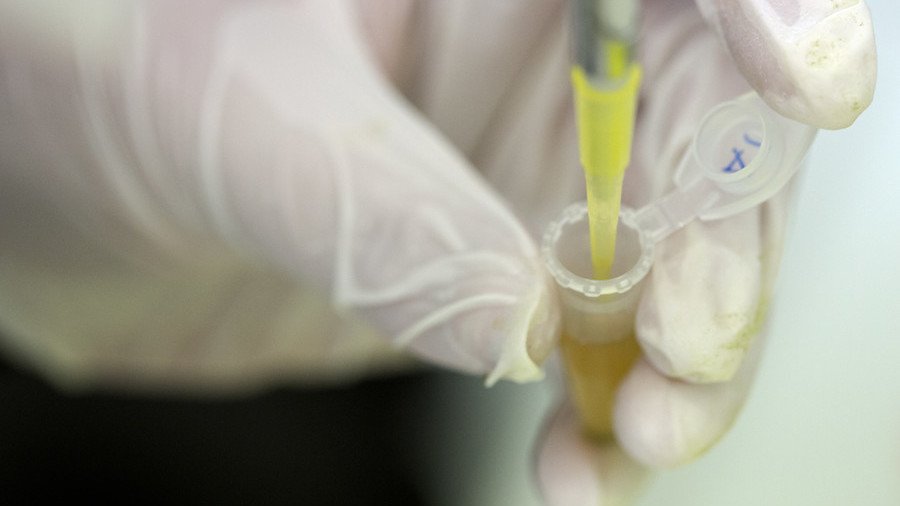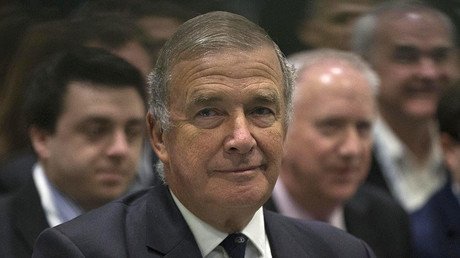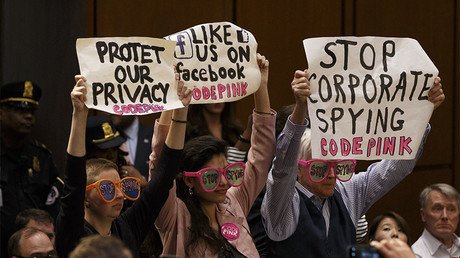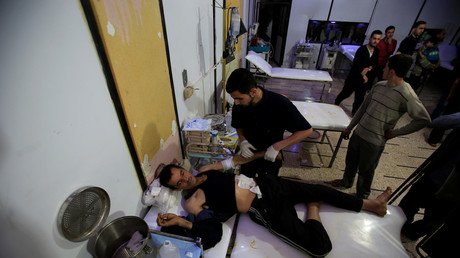‘I made Skripal poison. Maybe. Probably not. But I was poisoned once’: Odd BBC scientist interview

The BBC has found a Russian scientist who says it’s possible he made the very nerve agent used to attack the Skripals in Salisbury. Or did he? Maybe not, as he later adds – but possibly. But also not really.
“Vladimir Uglev says he created the Novichok that was later used against the Skripals,” says the cool baritone of the BBC’s Moscow Correspondent Steve Rosenberg, who is giving the word ‘allegedly’ a rest for the day.
Rosenberg asks: “How certain are you that the substance which you synthesized is the one that poisoned the Skripals?”
“I have no doubt that it was…” replied Uglev. That’s case closed then.
"I am certain it was A-234 that poisoned the Skripals...it may well have been from a batch I made with my own hands." I speak to a scientist who worked on the Soviet nerve agent programme. Camera @mattgodtv Producer @LizaVereykinapic.twitter.com/3CtB0DgpJb
— Steve Rosenberg (@BBCSteveR) April 19, 2018
Uglev claims: “I have no doubt that it was A-234 that poisoned them. Judging by how pure the test sample is, this may well have been a batch I made with my own hands. It has a long shelf life, virtually no expiry date.”
It’s not really made clear how he can be so sure of his conclusion, and there does seem to be maybe a little bit of doubt, but the report doesn’t try too hard to push the scientist on it, because that’s a very nice headline.
The BBC’s report is just shy of two minutes of conflicting information that sails by more or less unchallenged. Uglev says he is convinced the Salisbury attack was the work of the Russian state. He says, though, that “You’ll never prove it.” Useful.
Uglev goes on to tell Rosenberg of that one time he accidentally spilt Novichok all over his hand. You read that right – deadly, killer, monstrous Novichok all over someone’s hand. He seems fine now though. “My right hand got covered in nerve agent,” says perfectly healthy seeming Uglev, who appears to be suffering no side effects from one of the world’s most deadly toxins. “I put it in hydrochloric acid right away then washed it with a special alkaline solution with hydrogen peroxide.
“You could say the Skripals and I were baptized with the same Novichok,” he adds, in an almost proud manner.
The report comes only days after a BBC presenter chided a retired British Navy chief for questioning the evidence behind the Syria attack because of an “information war with Russia.”
READ MORE: How to become 'an Assad apologist'? Just question MSM rhetoric & welcome to the club
During a live interview with former Navy Admiral Lord West, BBC news presenter Annita McVeigh told the ex-Navy chief truthfully stating his position and posing such alternative questions risked “muddying the waters” in the ongoing “information war with Russia.”
Well, Rosenberg is on the frontline and says in the final seconds of his report: “The new dawn is confrontation.” Whatever that means.
Think your friends would be interested? Share this story!















